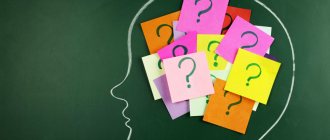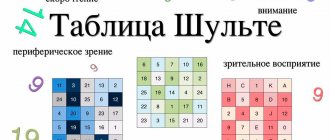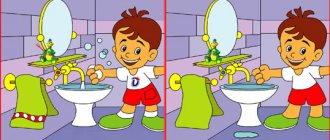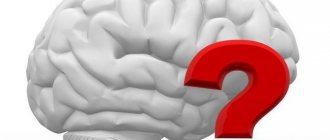Attention and memory in modern children.
The issue of memory and attentiveness of adolescents is extremely important these days.
There is quite a lot of information today and children regularly have to memorize considerable amounts of information. Some people may seem to us like real robots with terabytes of memory, who keep information in their heads about everything that happens to them. In the same way, little children look at their parents, who solve a million problems every day.
Is it worth remembering everything if you always have a gadget at hand?
A modern teenager always has a phone in his pocket. He doesn’t have to keep all the lists and schedules in his head, because he can press a couple of keys and everything planned will appear on his phone. And a smart gadget will tell you at the right moment that it’s time to do this or that task.
This is all wonderful, of course. With a phone in hand, a person can be sure that he will not miss an event that is important to him. But among other things, this habit destroys and weakens the most important muscle in our body—the brain. You understand how our body works, right? We go to the gym to exercise our body and keep it in shape. The same thing happens with the brain. If a person stops training him, sooner or later he will become completely weak.
Why do schoolchildren need to develop attention and memory?
No matter how gadgets help us out in everyday life, any student needs to prepare for tests and tests, remember dates and rules, and learn exceptions. No schoolchild's gadget will help out here. If a student has developed memory and attention, then he will succeed in his studies, which means he will become more self-confident.
And of course, final and entrance exams, for which you have to prepare for more than 1 month. Children need to absorb and learn a huge amount of material. Children often begin preparation 2-3 years before entering university and study individual subjects. This requires enormous resources and focus.
Now imagine what it’s like to prepare for exams for a teenager with a good memory and how difficult it is for a schoolchild with underdeveloped memory and attention.
Folk remedies for improving memory and attention
Many people, regardless of age, face the problem of forgetfulness and absent-mindedness. To solve it, I recommend using traditional medicine recipes
They will help restore memory and improve attention without the help of pharmaceutical drugs
- Swamp calamus root. A teaspoon of raw material is ground into powder and taken half an hour before meals, washed down with tea. The duration of the treatment course is one month. After one decade, the powder is taken for another two weeks, then they take a break for 10 months and repeat the course. The drug is not recommended for inflammatory diseases and renal failure.
- Elecampane. A spoonful of crushed root is poured with 500 ml of vodka and left for a month. The strained medicine is taken in a spoonful three times a day for one month. No more than one course is offered per year. If you are pregnant or have heart disease, it is better not to take the medicine.
- Rowan bark. Pour a tablespoon of raw material into a glass of water and boil for 10 minutes. After 6 hours, filter the broth and take a spoonful three times a day for 30 days. Six months later the course is repeated. The list of contraindications includes increased blood clotting and pregnancy.
- Clover. A liter jar is filled halfway with raw materials and filled to the top with vodka. Keep the medicine in a cool, dark place for two weeks, then take it by spoon before bed for 20 days. After a two-decade break, the course is repeated. The product eliminates tinnitus, normalizes intracranial pressure and has a positive effect on brain function. Not recommended for heart failure and pregnancy.
- Mint and sage. Pour 500 ml of boiling water over a spoonful of mint and sage leaves and leave until the morning. Take 50 ml infusion half an hour before meals for two weeks. After a month's pause, the course is repeated. The infusion increases performance and improves brain functioning.
- Pine buds. Pour a glass of boiling water over a spoonful of pine buds and boil over low heat for about 10 minutes. Drink homemade medicine three times a day, two tablespoons after meals.
- A mixture of medicinal herbs. First, grind 1 spoon of oregano, 4 spoons of bergenia and 3 spoons of raspberry leaves. Add 500 ml of water to a spoonful of the resulting mixture and cook for 10 minutes. After 2 hours, the product is filtered. Take the medicine for two decades twice a year. The product is not recommended for pregnant women and people with stomach diseases.
From the editor: Disease vegetative-vascular dystonia
Aromatherapy has a beneficial effect on memory and attention. To improve sleep and normalize brain function, it is recommended to place a collection of juniper, cedar and eucalyptus in the bedroom
There is also an option for the workplace. This is a mixture of laurel, eucalyptus, coriander and cloves in a linen bag.
Features of teenage memory, attention and thinking.
Previously, the baby learned and memorized everything mechanically. Now the situation is a little different.
Teenagers develop faster and so does their thinking. At the age of 13, children already have well-developed logical thinking; they can form hypotheses and draw conclusions. And by the age of 16, the formation of mental processes is completed.
At this point, mechanical memory becomes weaker, and logical memory, on the contrary, becomes stronger.
The child feels unusual: after all, before everything was remembered by itself, but now it is necessary to make considerable efforts. And the effort lies in the fact that the child must understand the connection and meaning in order to remember.
The problem with modern schools is that children have to “cram” more, and hence have poor memory.
Teenagers' attention is also reaching a new level. Now students can consciously concentrate on an uninteresting topic or task. On the other hand, the impressionability and emotional state of adolescents make it difficult to maintain this concentration for a long time on an uninteresting object.
If a student’s memory sharply deteriorates, parents are obliged to contact and inform the doctor.
What brain medications are used for adults?
It is especially important for people to use drugs that improve memory and attention in adults. The best of them are:
Divaza
It is used for disorders of the nervous system. It is also prescribed to patients with traumatic brain injuries. It restores interhemispheric connections between the right and left parts of the brain. Also, the substances included in this drug increase the brain’s resistance to toxic influences penetrating from the external environment. But pregnant women should not use it. However, the medicine cannot be used by people with glucose-galactose malabsorption, congenital galactosemia, or congenital lactose deficiency. It contains glucose.
Undevit
It contains vitamins A, B, C, E, P. All together they have a slight synergistic effect on the human body. The drug improves metabolism in the body, so it is usually prescribed to older people. Apply it 2-3 tablets per day. The course is 20-30 days. The drug often causes allergies.
Encephabol
It contains pyritinol. It is this that improves metabolic processes in the brain and has a slight antioxidant effect on the body. It is usually prescribed to people with a traumatized head, atherosclerosis, and encephalitis. But people with hypersensitivity, kidney disease, and autoimmune pathologies should not use it. The drug has side effects. So its abuse can lead to a complete loss of appetite, allergies, and fatigue. This medication is prescribed very rarely. Moreover, before using it, the patient must undergo a full examination.
From the editor: Disease vegetative-vascular dystoniaCavinton
It contains vinpocetine. It has a beneficial effect on brain tissue. This medication is prescribed to people with encephalopathy, those who have had a stroke, or those suffering from severe consequences of atherosclerosis. But pregnant and nursing mothers, as well as people suffering from severe anemia, should not use it. The medicine also often causes side effects. The patient may experience a sharp drop in blood pressure, severe migraine, dyspeptic reaction, dry mouth, and increased heart rate.
Cerebrolysin
It contains a concentrate of peptides that was specially derived from pig brain. This drug improves the condition of nerve cells. It is usually prescribed to citizens suffering from Alzheimer's disease, those who have suffered a traumatic brain injury, or those suffering from complications arising from a stroke. But people with hypersensitivity, epilepsy and kidney disease cannot use it. Taking such a drug by this category of citizens can lead to prolonged depression, loss of appetite, and a jump in blood pressure.
Noopept
This medication was developed by Russian scientists. Not only does it improve brain activity and memory, but it also acts as a natural brain peptide. It also improves brain activity on three main levels:
- at the introductory stage,
- during primary information processing
- and playing it back.
Additionally, Noopept has a neuroprotective effect on brain neurons. He restores them and maintains them in normal condition. Moreover, Noopept also restores normal blood circulation in the brain. It is prescribed to people with low concentration. It is usually taken by senior citizens. But pregnant women and women breastfeeding should not use it. People with hypersensitivity should use it especially carefully. The drug may cause allergies or a sharp increase in blood pressure.
Memoplant
This is a herbal preparation that improves brain activity and memory, tones the blood vessels of the brain, normalizes metabolic processes, relieves headaches, eliminates tinnitus, and improves blood flow to the extremities. Use no more than 120 mg per day.
How to develop memory in schoolchildren.
It is necessary to develop memory, at least so that in the future the child feels like a full-fledged member of society. There are many ways to maintain your memory at the proper level and even develop it.
- You can use alternative methods of memorization. This means that the child must come up with an image that he associates with the object;
- train structured memorization;
- monitor your daily routine, adhere to proper nutrition and lead a healthy lifestyle;
- learn the material consistently and consciously;
- Every teenager should have a hobby. In addition to daily study, there should be activities that will relax the student and bring pleasure.
Developing associative memory
The development of associative memory in elementary school students is a very effective method. There is a whole science for training the formation of associations - mnemonics. Exercises to develop associations include diagrams, tables, pairs of words that are not related in meaning. Regarding the latter, name a couple of words that have different meanings and give the child the task of coming up with a story using these words. And diagrams and tables with pictures will teach children to write stories; perform some manipulations in a certain sequence, for example, getting dressed. Mnemonic diagrams help increase vocabulary and quickly memorize text. They say that a poem is best remembered if you “see” it.
How to properly train your brain?
Start by solving puzzles. It may seem difficult at first, but if you start concentrating and solving puzzles for a while, your brain will be able to cope with the tasks faster and better.
Mixed up color words
This is one of the most effective exercises for training attention. The essence of the exercise is that words of colors are written in front of you, but you should not read the letters, but name the ink with which the words are written. And the whole point here is that the word red can be written in blue ink. Train every day for 10-15 minutes and your memory and attention will improve in just a couple of weeks.
Illogical chain
You are given 20 unrelated words. You look at them for 1-1.5 minutes, and then try to name as many words as possible. Daily training will give quick and effective results.
Learn by heart
Regular memorization of songs and poems, retelling films and books will help you maintain a good memory. And if you practice this exercise with the whole family, you can have fun and usefully spend time.
Courses on memory development at the training center.
You can practice at home and get significant benefits. Or you can visit a training center, where experienced mentors will help you develop memory and attention.
At the beginning of the training, each student undergoes diagnostics. Each of us has some type of memory that is more developed. Therefore, the emphasis of the courses is on this, because the result will be much more effective.
After diagnosis, an individual program and practical recommendations are selected for each student for both students and their parents.
Memory and attention are important tools that each of us uses throughout our lives. If we develop and train them correctly, then these tools will serve us well. It's best to do this in your teens. While the brain is flexible, it can and should be trained and developed daily.
Article:
Often schoolchildren are very absent-minded; they do not remember information they receive from teachers and parents.
Some psychologists attribute this to the fact that all students are heavily overloaded with unnecessary information, and their brain simply tries not to remember what it does not need, and a lot of things may turn out to be unnecessary for it. But they also say that if you don’t want to put up with this state of affairs, but dream of improving your child’s memory, so that he becomes more focused in life, more successful in school, then they advise a few simple rules for improving memory. By the way, these tips can be useful not only for schoolchildren, but also for parents.
We offer you 10 ways to improve memory and self-development:
1. Reading good literature
Of course, many parents understand how difficult it is to get a schoolchild to read a good book instead of watching cartoons, chatting on social networks or playing computer games. But nothing is impossible, you can convince your child that reading is fashionable and useful.
The most important thing is to show him by example that reading is an integral part of life for you. You can also tell your child interesting stories that you learned from books, invite him to take turns reading aloud those books that inspired you, for example, during the holidays.
And also, in order for your child to have an incentive to read and the opportunity to read anywhere, you can give him a modern e-reader and make for him a selection of important books, in your opinion, that are worth reading.
2. New skills
New skills train your memory very effectively. Encourage your child to learn another sport if he is already involved in something, and start playing sports if he is currently leading a passive lifestyle.
Also tell your child about the many interesting sections and clubs where he can learn to play different instruments, sing, act on stage, draw, do handicrafts, and also invite him to enroll where he wants.
3. Increase vocabulary
Create a fun game at home: discover a new word every day. The Internet will help you find difficult words and their interpretations. In its vastness you can learn what procrastination, downshifting, phenylketonuria and more are.
4. Learn by heart
Children are asked to memorize a lot of poems, but often they are “lazy.” Join the learning process with your child, talk to him about your favorite poetry, read it to him and offer to learn it.
5. Numbers
Memorizing numbers has a great effect on memory development. Try, together with your student, to remember the birthday dates of all your friends and relatives, play with him the game “Who will remember the most?”
6. Learning foreign languages
Learning foreign languages is a great workout for the brain. And this knowledge will always be useful to your child in life. Therefore, if your child is not yet taking foreign language courses, it’s time to fix it...
7. Talk about the past
Talk to your child more, ask him to tell him what he had at school, how he went out with friends yesterday. You shouldn’t be satisfied with your child’s monosyllabic answers; bring him into a full-fledged conversation; if he’s not very willing to talk, you should tell him first, and then he’ll join in too.
8. Sleep
Of course, you shouldn’t forget about a healthy eight hours of sleep. During the day, our brain solves all sorts of problems and problems. Therefore, he needs a good rest at night. And then, tomorrow, he is again ready to solve various problems. Don't forget about it!
9. Get rid of routine
Try to teach your child to get rid of routine, don’t go to your favorite cafe on the weekend, try going to a new place, come up with different breakfasts. Encourage your child to spend every weekend in a variety of ways. In the process of getting rid of your routine, your memory will be trained.
10. Games
If you don’t play chess at home yet, you can start, this game perfectly develops memory and logical thinking. Triple the chess competition among everyone at home, let grandparents take turns taking part in the game if they live with you. I wonder which of you will be the winner?
To make your memory and your child's memory much better, try not to forget these useful tips and do something every day to improve memory.









